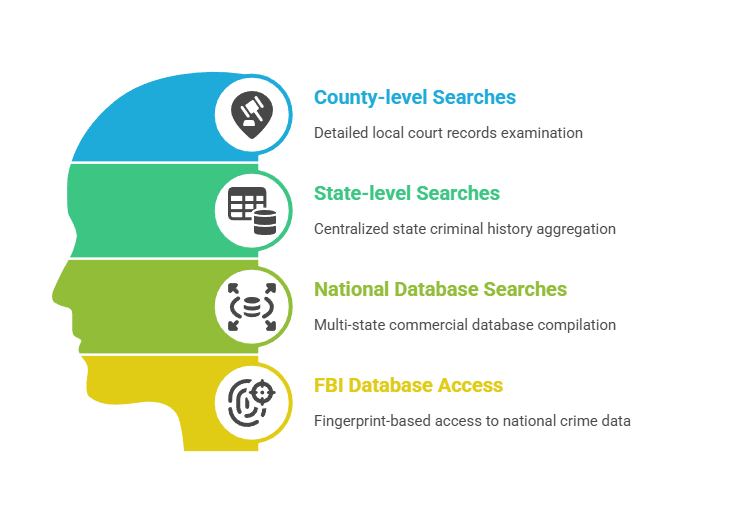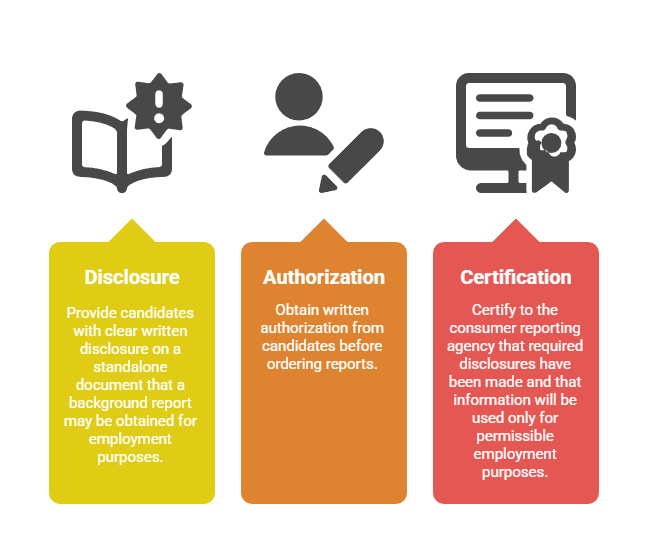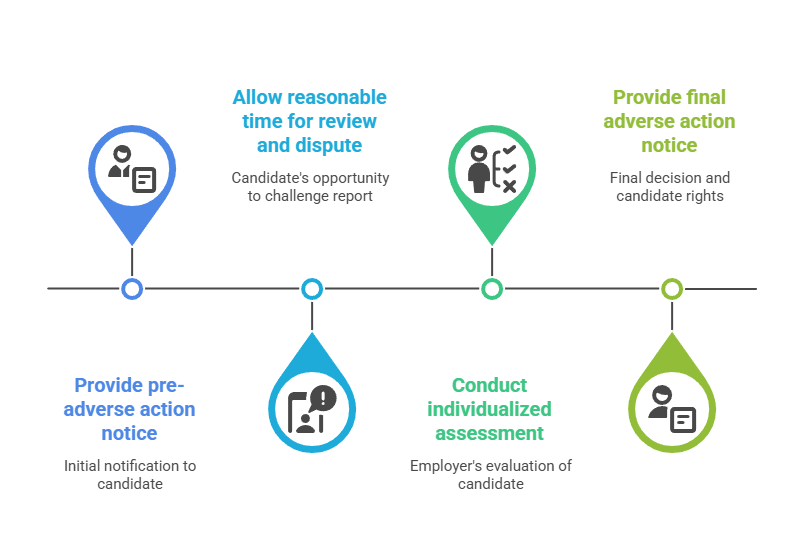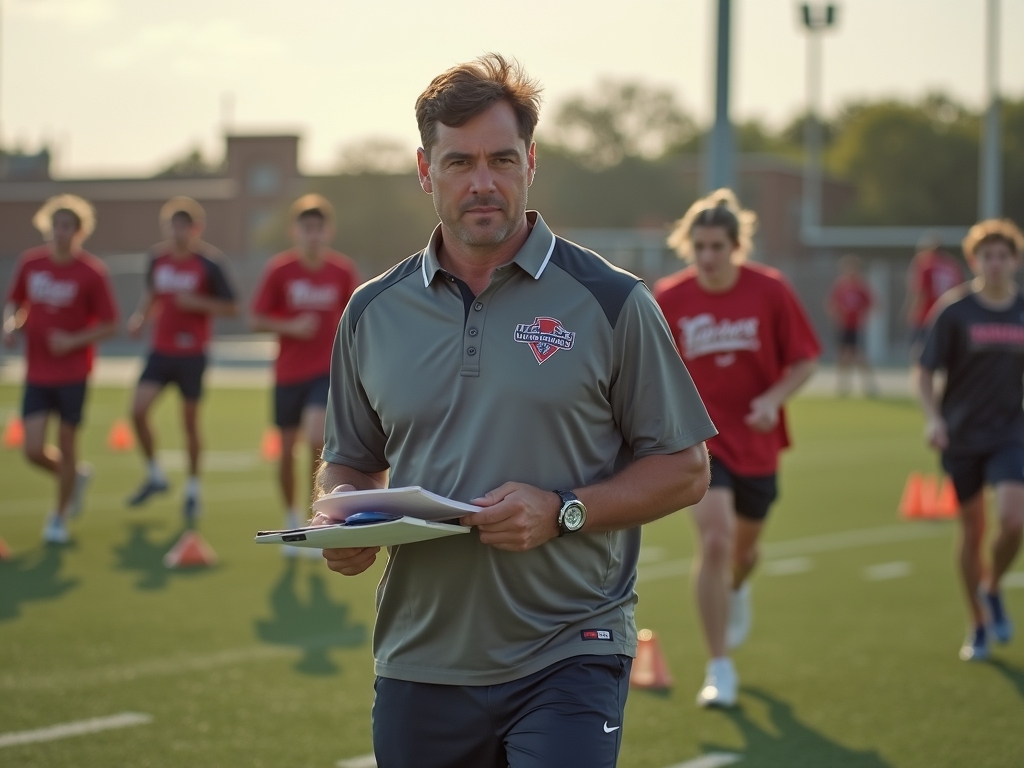Texas coaching background check requirements vary significantly based on employment type, organizational structure, and jurisdiction—with UIL-mandated public school protocols differing substantially from private league standards. Volunteer positions may trigger distinct screening processes than paid roles, while athletic directors must navigate state-level mandates, county-specific regulations, and federal FCRA guidelines with processing timelines ranging from 48 hours to several weeks, depending on the screening methodology and organizational requirements.
Key Takeaways
- Texas public school coaches must complete fingerprint-based FBI criminal history checks through the Texas Department of Public Safety under Texas Education Code Section 22.0834, with UIL typically requiring cleared results before coaching activities begin.
- Volunteer coaches in Texas public schools generally require comprehensive fingerprint-based background checks similar to paid staff, though specific district policies may vary based on supervision levels and contact frequency.
- Processing times for Texas coaching background checks typically range from 3-5 business days for name-based searches to 2-4 weeks for fingerprint-based FBI checks, though actual timelines may extend to 6-10 weeks during peak hiring seasons.
- Texas Education Code Section 22.085 establishes categories of disqualifying offenses including certain felony convictions, crimes against children, sexual offenses, and drug-related violations, though specific applications may vary and require legal interpretation.
- Substitute and assistant coaches in Texas public schools typically require the same comprehensive background screening as head coaches under UIL regulations, with limited exceptions for temporary positions.
- Private schools and independent youth sports organizations in Texas generally aren't bound by UIL mandates but should comply with national governing body requirements and liability insurance conditions.
- Texas Education Code requires background check updates every five years for public school employees under State Board for Educator Certification (SBEC) protocols, though many districts implement annual rescreening policies.
- County-level variations exist across Texas jurisdictions, with some metropolitan areas implementing additional local criminal history checks beyond state-mandated screenings based on municipal ordinances.
Understanding Texas's Layered Coaching Background Check Framework
Texas operates under a multi-tiered system for coaching background checks that varies by organizational type and jurisdiction. The state's approach combines mandatory screenings for public school employees with different standards for private organizations. This creates substantially different compliance obligations depending on organizational structure and location.
UIL Requirements for Public School Coaches
The University Interscholastic League (UIL) establishes baseline standards for Texas public school coaching positions across all sports and competition levels. Under Texas Education Code Section 22.0834, public school coaches must undergo fingerprint-based criminal history checks processed through the Texas Department of Public Safety (DPS). These screenings include searches of both state criminal records and FBI national databases.
School districts generally cannot allow coaching duties to commence until receiving official clearance from DPS, though specific implementation may vary by district policy. The UIL Constitution and Contest Rules specify that failure to complete required background checks before coaching activities can result in forfeiture of contests and sanctions against the school district. Organizations should consult with legal counsel regarding their specific compliance obligations and any applicable exceptions.
Private League and Youth Sports Organization Standards
Private schools, club sports organizations, and independent youth athletic programs operate outside UIL jurisdiction and face different compliance landscapes. These entities typically must follow requirements established by their national governing bodies—such as USA Swimming, US Youth Soccer, or Amateur Athletic Union (AAU). Most national sports organizations require member clubs to conduct criminal background checks that include multi-state database searches and sex offender registry verification.
Insurance carriers providing liability coverage to youth sports organizations increasingly require documented background screening programs as policy conditions. This effectively creates de facto standards even where legal requirements don't exist. Organizations that fail to implement adequate screening may face heightened legal exposure in negligent hiring claims, though specific liability depends on jurisdictional laws and case-specific circumstances.
Volunteer Versus Paid Position Distinctions
Texas law generally draws distinctions between volunteer and paid coaching roles that may affect screening obligations. Paid coaches in public schools typically require comprehensive fingerprint-based background checks as school district employees. Volunteer coaches in public school settings generally face similar requirements under most district policies, though some districts classify certain volunteer positions differently based on supervision levels and student contact frequency.
Private youth sports organizations have more flexibility regarding volunteer coach screening based on their organizational policies and insurance requirements. However, legal precedent in many jurisdictions favors comprehensive checks regardless of compensation status when evaluating negligent hiring claims. Organizations should consult legal counsel when establishing screening protocols that differentiate between paid and volunteer positions to ensure compliance with applicable laws and reasonable risk management standards.
What Texas Coach Background Checks Actually Include
Understanding the components of Texas coaching background checks helps administrators evaluate screening programs and work toward compliance with applicable standards. Background screenings vary in scope from basic name-based searches to comprehensive multi-jurisdictional investigations involving fingerprint analysis, with different methodologies providing varying levels of accuracy and completeness.
Criminal History Database Searches
Most Texas coaching background checks include searches of criminal records databases at multiple jurisdictional levels. The scope and accuracy of these searches vary significantly:

- County-level searches: Examine court records in specific Texas counties where candidates have lived, worked, or attended school, providing detailed information about arrests, charges, and dispositions from county criminal courts.
- State-level searches: Query centralized criminal history repositories maintained by Texas DPS under Texas Government Code Chapter 411, aggregating records from counties throughout the state that report to the central database.
- National database searches: Compile records from multiple states through commercial databases, though these sources may contain gaps and inconsistencies that limit reliability compared to direct court searches.
- FBI database access: Available only through fingerprint-based checks processed under applicable federal and state authority, providing access to the National Crime Information Center (NCIC) database with nationwide criminal history records.
Athletic directors should understand that name-based national database searches offered by background screening companies don't access FBI NCIC records and may miss relevant criminal history from other jurisdictions.
Sex Offender Registry Verification
Texas public school coaching background checks typically must include searches of sex offender registries at state and national levels under applicable education code provisions. The Texas Department of Public Safety maintains the state's sex offender database under Texas Code of Criminal Procedure Chapter 62, which includes detailed information about registered offenders' addresses, physical descriptions, and conviction details. The National Sex Offender Public Website (NSOPW) aggregates registry information from all 50 states, territories, and tribal jurisdictions.
Registry searches serve as critical safeguards for youth-serving organizations, as registered sex offenders are generally disqualified from coaching positions involving minors under Texas Education Code Section 22.085. Administrators should verify that background check vendors include appropriate registry searches as standard components and should implement procedures for periodic re-verification since individuals may be added to registries after initial screenings.
Fingerprint-Based FBI Background Checks
Fingerprint-based background checks provide enhanced accuracy for coaching position screenings by accessing FBI criminal history databases unavailable through name-based searches. Texas public school districts submit coach fingerprints to DPS under Texas Education Code Section 22.0834, which forwards them to the FBI for comparison against national criminal records maintained in the Interstate Identification Index.
This process provides more reliable identification methodology than name-based searches, reducing false positives that occur when multiple individuals share similar identifying information. The FBI background check process returns results showing arrests and dispositions reported to the FBI by participating agencies, though reporting comprehensiveness varies by jurisdiction and some local law enforcement agencies don't consistently report all arrest information to state or federal databases.
Texas Coach Background Check Processing Timelines
Background check completion timelines significantly impact hiring processes, particularly for athletic directors managing coaching vacancies close to season start dates. Processing speeds vary based on screening methodology, vendor capabilities, seasonal demand fluctuations, and jurisdictional factors that administrators should consider when planning hiring timelines.
Standard Processing Windows by Check Type
Different background check methodologies produce varying turnaround times that organizations should account for in hiring planning:
| Check Type | Typical Processing Time | Peak Season Considerations |
| Name-based criminal searches | 3-5 business days | May extend to 7-10 days for complex cases |
| State database searches (Texas DPS) | 24-48 hours | Generally consistent year-round |
| Fingerprint-based FBI checks | 2-4 weeks average | Can extend to 6-10 weeks June-August |
| Sex offender registry searches | 24-48 hours | Minimal seasonal variation |
UIL background check processing may experience seasonal peaks during summer months when school districts process coaching appointments for fall sports. Administrators should anticipate potentially longer turnaround times from June through August and initiate screening processes as early as organizational policies and hiring timelines permit.
Common Delays and Resolution Strategies
Several factors can extend background check timelines beyond standard processing windows. Candidates with common names may require additional verification steps to ensure accurate record matching. Individuals who have lived in multiple states or counties require expanded search parameters that increase processing complexity. Incomplete or illegible fingerprints may necessitate re-submission, potentially adding 1-2 weeks to processing times.
Athletic directors can work to minimize delays by collecting complete and accurate candidate information upfront, including residential history for the past 7-10 years and all name variations used. Scheduling fingerprinting appointments promptly after conditional job offers helps prevent unnecessary waiting periods. Maintaining relationships with responsive background screening vendors who provide status updates helps administrators track progress and address issues as they arise.
Disqualifying Offenses for Texas Coaching Positions
Texas Education Code establishes categories of criminal convictions that may permanently or temporarily disqualify individuals from public school coaching positions. Understanding these disqualifying criteria helps administrators make informed hiring decisions, though specific applications may require legal interpretation based on individual circumstances and evolving case law.
Permanent Disqualifications Under Texas Education Code
Texas Education Code Section 22.085 generally prohibits school districts from hiring individuals convicted of certain serious offenses, subject to limited exceptions that may exist under Texas law. These categories typically include felonies involving moral turpitude, any criminal offense requiring sex offender registration under Texas Code of Criminal Procedure Chapter 62, sexual assault, indecency with a child, injury to a child or elderly person, and abandoning or endangering a child.
Convictions for continuous sexual abuse of a child, possession or promotion of child pornography, trafficking of persons, compelling prostitution, and criminal attempt, conspiracy, or solicitation to commit these offenses also generally create permanent bars. School districts should consult legal counsel regarding their authority to consider these convictions and any potential exceptions that may apply, such as pardons, certificates of relief, or expunged records. The application of these disqualifications may vary based on specific case circumstances and subsequent legal developments.
Temporary Bars and Time-Limited Disqualifications
Beyond permanent disqualifications, Texas Education Code generally creates temporary bars for certain offense categories based on time elapsed since conviction or release from supervision. Under typical applications of Texas Education Code Section 22.085, school districts may not hire individuals convicted of felonies not involving moral turpitude until five years after release from confinement, community supervision, or parole, whichever date is later. Misdemeanor offenses involving violence, drugs, or alcohol may create bars until two years after conviction or completion of supervision.
The term "moral turpitude" generally refers to conduct that is inherently base, vile, or depraved, contrary to accepted moral standards of the community. Texas courts determine moral turpitude on a case-by-case basis, with common examples including theft above statutory thresholds, fraud, forgery, and intentional violence. However, classifications vary significantly based on specific offense elements and judicial interpretation. Organizations should consult legal counsel when evaluating whether specific convictions involve moral turpitude.
Out-of-State Convictions and Individualized Assessments
Texas Education Code Section 22.085 generally applies disqualification standards to equivalent offenses from other states, territories, and federal jurisdictions. Determining equivalency requires analyzing the elements of out-of-state offenses to identify which Texas statute most closely corresponds, which can prove complex when other jurisdictions define crimes differently or use different terminology for similar conduct.
Under EEOC Enforcement Guidance on the Consideration of Arrest and Conviction Records (2012), employers should conduct individualized assessments when evaluating criminal history that consider the nature and gravity of the offense, the time that has passed since the conviction, and the nature of the job sought. School districts should consult with legal counsel when evaluating convictions to ensure compliance with applicable federal and state requirements and to document their assessment processes appropriately.
Special Circumstances and Position-Specific Requirements
Certain coaching positions and organizational contexts may create unique background check considerations that require special attention from Texas administrators. Understanding these nuances helps prevent compliance gaps across all coaching roles, though specific requirements may vary by district policy and organizational structure.
Substitute and Assistant Coach Background Checks
Texas public schools typically must subject substitute and assistant coaches to similar background check requirements as head coaches under UIL regulations, though specific district policies may vary. The UIL generally states that individuals performing coaching functions require clearance before student contact, regardless of title, compensation level, or anticipated duration of service. Organizations should verify their specific policy requirements and applicable UIL interpretations.
Some administrators may question whether assistant coaches working under direct head coach supervision require identical screening, but Texas Education Code Section 22.0834 generally makes no such distinction for school employees with student access. Districts should implement clear procedures ensuring that coaching appointments, including last-minute substitutions, go through proper screening channels before individuals assume duties, while consulting legal counsel regarding any potential exceptions or alternative arrangements.
Seasonal and Part-Time Coaching Positions
Seasonal coaches who work only during specific sports periods generally face similar background check requirements as year-round staff in Texas public schools under typical applications of Texas Education Code provisions. The temporary nature of seasonal appointments typically doesn't reduce screening obligations under most district policies. School districts generally should complete fingerprint-based background checks for seasonal coaches well in advance of their start dates, accounting for processing timelines that may extend several weeks during peak periods.
Part-time coaching positions in private youth sports organizations should follow background check protocols appropriate to their organizational policies and insurance requirements. Organizations that implement different standards based on hours worked or seasonal versus year-round status should consult legal counsel to evaluate potential legal vulnerabilities and policy consistency concerns.
Multi-Organization Coaching Scenarios
Coaches who work for multiple organizations simultaneously should understand that background checks typically don't automatically transfer between entities under most organizational policies. Public school fingerprint-based checks satisfy Texas Education Code requirements for that specific employment relationship but generally don't constitute compliance for separate club team positions. Each organization typically maintains independent screening obligations based on their policies, insurance requirements, and applicable legal standards.
Some private organizations may accept recent background check results from other entities as equivalent screenings when public school checks are more comprehensive than their own requirements. Organizations considering this practice should implement clear written policies regarding whether external background checks satisfy their requirements, what verification procedures apply, and what documentation must be maintained. Legal counsel should review such policies to ensure they provide adequate liability protection.
Maintaining Compliance Through Re-Screening and Updates
Background check compliance extends beyond initial hiring to include ongoing monitoring and periodic re-verification throughout coaching tenures. Texas administrators should implement systems working toward continuous compliance with evolving standards, though specific requirements vary by organizational type and applicable regulations.
Required Re-Screening Intervals
The Texas Education Code generally requires public school districts to update criminal history checks for employees every five years through the State Board for Educator Certification (SBEC) fingerprint clearance process under 19 Texas Administrative Code Section 249.14. This quinquennial reverification helps identify employees who acquire disqualifying convictions during employment, though organizations should consult legal counsel regarding current requirements and any applicable exceptions.
Many school districts implement more frequent rescreening policies beyond statutory minimums, with annual background checks for coaching staff being common practice given the nature of student athletic supervision. Private youth sports organizations should establish written policies regarding background check validity periods and re-screening requirements appropriate to their organizational needs, insurance conditions, and applicable national governing body recommendations.
Continuous Monitoring and Ongoing Verification
Some background screening vendors offer continuous monitoring services that alert organizations to new criminal activity involving current employees. These systems periodically query criminal databases and notify administrators when monitored individuals appear in new records. Continuous monitoring may provide more comprehensive protection than periodic re-screening by reducing the time gap between criminal activity and organizational awareness, though effectiveness depends on database reporting comprehensiveness.
Organizations considering continuous monitoring should evaluate cost considerations, privacy implications, and whether such systems align with their risk management needs. Clear policy communication during hiring helps address potential coach concerns about ongoing monitoring, though organizations should consult legal counsel before implementing continuous monitoring programs to ensure compliance with applicable privacy laws and employment regulations.
Best Practices for Texas Athletic Directors and Youth Sports Administrators

Effective background check program management requires thoughtful policy development beyond minimum legal compliance. Texas administrators should consider implementing comprehensive policies that work toward robust safeguards for student-athletes while maintaining compliance with applicable legal requirements and organizational needs.
Developing Written Screening Policies
Organizations should consider adopting written background check policies that specify screening components, evaluation criteria, re-screening intervals, and administrative responsibilities. Written policies provide consistency across hiring decisions and help establish objective standards applied uniformly to candidates. Policy documents benefit from regular review and updates to reflect changing legal requirements and evolving organizational practices.
Background check policies should address candidate disclosure obligations, procedures for handling disqualifying information discovered during screening, and processes for candidates to contest inaccurate information. Organizations should consult legal counsel when developing screening policies to ensure compliance with Fair Credit Reporting Act (FCRA) requirements under 15 U.S.C. § 1681 et seq., Equal Employment Opportunity Commission (EEOC) guidance, and applicable state and local laws.
FCRA Compliance for Background Screening Programs
Organizations must comply with the Fair Credit Reporting Act when using third-party consumer reporting agencies to obtain background reports for employment decisions. FCRA compliance under 15 U.S.C. § 1681b requires specific procedures throughout the screening and decision-making process:
Before obtaining background reports:

- Provide candidates with clear written disclosure on a standalone document that a background report may be obtained for employment purposes
- Obtain written authorization from candidates before ordering reports
- Certify to the consumer reporting agency that required disclosures have been made and that information will be used only for permissible employment purposes
If considering adverse action based on background report information:

- Provide pre-adverse action notice including a copy of the background report and the FTC's "Summary of Your Rights Under the Fair Credit Reporting Act"
- Allow reasonable time (typically at least five business days) for the candidate to review the report and dispute any inaccurate information
- Conduct an individualized assessment considering the nature and gravity of the offense, time elapsed since the conviction or completion of sentence, and the nature of the position sought, consistent with EEOC Enforcement Guidance
- If proceeding with adverse action after the waiting period, provide final adverse action notice including the name and contact information of the consumer reporting agency, a statement that the agency didn't make the decision and can't provide specific reasons for it, and notice of the right to dispute report accuracy
Organizations should consult legal counsel to ensure their adverse action procedures comply with current FCRA requirements and any applicable state or local fair chance hiring laws. Proper documentation of each step in the adverse action process provides important legal protection.
Documentation and Record Retention Practices
Texas Government Code Section 441.185 and applicable retention schedules generally require school districts to retain employee background check records for the duration of employment plus seven years. Private organizations should consult legal counsel regarding appropriate retention periods that preserve documentation for potential legal proceedings while complying with applicable privacy and data security requirements.
Background check records should be maintained separately from general personnel files with restricted access limited to individuals with legitimate business needs, consistent with FCRA disposal requirements under 15 U.S.C. § 1681w. Organizations should document their decision-making processes when evaluating candidates with criminal histories, including analysis of offense relevance to coaching responsibilities and consideration of factors consistent with EEOC guidance. Thorough documentation demonstrates that organizations exercised reasonable judgment and followed consistent processes.
Conclusion
Texas coach background check requirements reflect a complex regulatory landscape requiring careful navigation by athletic directors and youth sports administrators. Public school coaches face UIL-mandated fingerprint-based screenings through Texas DPS and FBI databases under Texas Education Code Section 22.0834, while private organizations must balance national governing body requirements with liability insurance conditions. Successful compliance demands understanding the distinctions between organizational types, permanent versus temporary disqualification categories under Texas Education Code Section 22.085, and jurisdictional variations across Texas counties. Organizations should consult legal counsel to ensure their screening programs comply with applicable federal, state, and local requirements while implementing policies appropriate to their specific circumstances and risk management needs.
Frequently Asked Questions
How long does a UIL background check take in Texas?
UIL background checks for Texas public school coaches typically take 2-4 weeks to complete for fingerprint-based FBI criminal history searches processed through Texas DPS, though actual processing times may extend to 6-10 weeks during peak hiring seasons from June through August. Processing timelines can be affected by fingerprint quality issues requiring resubmission, FBI processing backlogs, and seasonal demand fluctuations. Athletic directors should initiate screening processes as early as possible and account for potential delays when planning hiring timelines, while understanding that expedited processing options generally cannot significantly accelerate federal FBI database searches.
What disqualifies you from coaching in Texas?
Texas Education Code Section 22.085 generally establishes categories of disqualifying offenses for public school coaching positions, including certain felonies involving moral turpitude, offenses requiring sex offender registration, crimes against children, sexual assault, and trafficking offenses. Temporary disqualifications typically apply to some non-moral-turpitude felonies for five years after release from supervision and to certain misdemeanor offenses for two years after conviction completion. Specific applications may vary based on case circumstances, potential legal exceptions such as pardons or expungement, and evolving case law, so organizations should consult legal counsel when evaluating individual cases.
Do volunteer coaches in Texas need background checks?
Volunteer coaches in Texas public schools generally require comprehensive fingerprint-based background checks similar to paid coaching staff under typical district policy implementations of Texas Education Code Section 22.0834, though specific requirements may vary based on district policies regarding supervision levels and student contact frequency. Private youth sports organizations have more flexibility based on their organizational policies and insurance requirements, though many implement criminal background checks for all coaching positions regardless of compensation status as a risk management practice. Organizations should verify their specific policy requirements and consult legal counsel when establishing volunteer screening protocols.
Can Texas coaches work while background checks are pending?
Texas public school coaches generally cannot perform coaching duties until receiving official clearance from DPS fingerprint-based background checks under typical UIL regulation implementations, which generally prohibit exceptions even for emergency situations. Allowing unchecked individuals to coach may create compliance violations that can result in contest forfeitures and organizational sanctions, though specific consequences depend on the circumstances and applicable UIL interpretations. Private organizations should establish policies regarding whether coaching activities can occur before background check clearance based on their risk tolerance, insurance requirements, and legal counsel guidance.
How often must Texas coaches renew background checks?
Texas Education Code and 19 Texas Administrative Code Section 249.14 generally require public school employees to update criminal history checks every five years through SBEC fingerprint clearance processes, though many school districts implement more frequent rescreening policies such as annual background checks for coaching staff. Private youth sports organizations should establish written policies specifying background check validity periods appropriate to their organizational needs and insurance requirements, with many national governing bodies recommending annual reverification. Organizations should consult legal counsel regarding their specific re-screening obligations and consider continuous monitoring services as an alternative or supplement to periodic re-screening.
Do Texas coaching background checks transfer between organizations?
Background checks conducted for one Texas organization generally don't automatically satisfy screening requirements for separate employers under typical organizational policies, even when coaches work for multiple entities simultaneously. Each organization typically maintains independent compliance obligations based on their policies, insurance requirements, and applicable legal standards. Some organizations may accept recent comprehensive screenings from other entities with proper documentation and verification, though organizations considering this practice should consult legal counsel to ensure their acceptance policies provide adequate liability protection and comply with applicable requirements.
What background check do Texas substitute coaches need?
Substitute coaches in Texas public schools generally require fingerprint-based FBI background checks similar to head coaches under typical UIL regulation and Texas Education Code Section 22.0834 implementations, with limited exceptions for temporary or secondary positions varying by district policy. UIL regulations typically mandate that individuals performing coaching functions receive clearance before student contact regardless of title or anticipated service duration. School districts should implement procedures ensuring proper screening for substitute appointments before individuals assume coaching duties, while consulting legal counsel regarding any potential exceptions or alternative arrangements permitted under applicable laws and regulations.
Are out-of-state convictions disqualifying for Texas coaches?
Texas Education Code Section 22.085 generally applies disqualification standards to equivalent offenses from other states, territories, and federal jurisdictions by analyzing offense elements to determine corresponding Texas statutes. School districts should consult legal counsel when evaluating out-of-state convictions to ensure accurate equivalency determinations and compliance with EEOC guidance requiring individualized assessments. Administrators should document their analysis processes when handling out-of-state offenses, and organizations may benefit from legal counsel review when evaluating ambiguous convictions to ensure decisions align with applicable legal standards and organizational risk management needs.
Additional Resources
- Texas Education Agency - Criminal History Requirements for School Employees
https://tea.texas.gov/texas-schools/health-safety-discipline/criminal-history-clearance - University Interscholastic League - Constitution and Contest Rules
https://www.uiltexas.org/policy/constitution - Federal Trade Commission - Using Consumer Reports for Employment Decisions
https://www.ftc.gov/business-guidance/resources/using-consumer-reports-what-employers-need-know - EEOC Enforcement Guidance on the Consideration of Arrest and Conviction Records
https://www.eeoc.gov/laws/guidance/enforcement-guidance-consideration-arrest-and-conviction-records-employment
Still have questions?
Get in touch with our team today for a personalized demo and discover how our tailored volume pricing and packages can drive results for your business!
How useful was this page?*
Note: your comments are anonymous. We use them to improve the website. Do not include any personal details.
Visit our FCRA Compliance Tool or leave a message here if you need a response.
From the blog Explore the GCheck Content Hub

What Shows Up on a Home Health Aide Background Check: A Complete Compliance Guide for Employers and Job Seekers
4 Dec, 2025 • 18 min read
Hospital Volunteer Background Check: Complete Compliance Guide for Healthcare Facilities
4 Dec, 2025 • 20 min read
Florida MVR Check: Complete Guide to Driving Record Screening for Employers
4 Dec, 2025 • 16 min readThe information provided in this article is for general informational and educational purposes only and should not be construed as legal advice or a substitute for consultation with qualified legal counsel. While we strive to ensure accuracy, employment screening laws and regulations—including but not limited to the Fair Credit Reporting Act (FCRA), Equal Employment Opportunity Commission (EEOC) guidelines, state and local ban-the-box laws, industry-specific requirements, and other applicable federal, state, and local statutes—are subject to frequent changes, varying interpretations, and jurisdiction-specific applications that may affect their implementation in your organization. Employers and screening decision-makers are solely responsible for ensuring their background check policies, procedures, and practices comply with all applicable laws and regulations relevant to their specific industry, location, and circumstances. We strongly recommend consulting with qualified employment law attorneys and compliance professionals before making hiring, tenant screening, or other decisions based on background check information.

